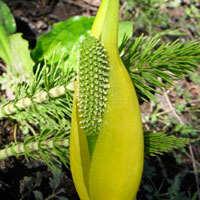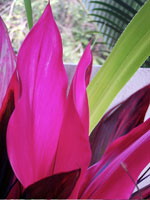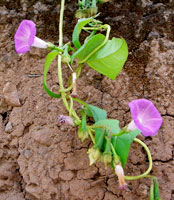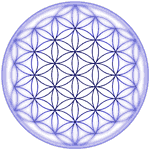
Herbal Medicine
Herbal medicine stretches back into the mists of antiquity. Plant pharmacopias in diverse parts of the world were developed by indigeneous peoples as part of their spiritual relationship with the environment that encompassed them. In China and in India in particular, complex herbal materia medicas were composed. Their plant medicines were understood not simply in terms of curative physical ingredients – what today we would call phytochemical components – but in terms of their overall energetic dynamics. Simply put, herbs are both physical and energetic agents.
 Modern drugs are still mostly derived either from plant extracts or from synthetic copies that have been artificially processed. This is why pharmaceuticals tend to have such long lists of dangerous side-effects, whereas herbs do not. Modern drugs are increasingly potent and specific in their target areas. Because they are not composed naturally, they will disrupt many of the delicate micro-processes that occur both at intra and at inter-cellular levels within the human being. These potentially lethal effects of drugs are at the origin of much chronic disease affecting us in the developed world, where deadly pharmacological side-effects can sometimes surface many years after the drug was first ingested.
Modern drugs are still mostly derived either from plant extracts or from synthetic copies that have been artificially processed. This is why pharmaceuticals tend to have such long lists of dangerous side-effects, whereas herbs do not. Modern drugs are increasingly potent and specific in their target areas. Because they are not composed naturally, they will disrupt many of the delicate micro-processes that occur both at intra and at inter-cellular levels within the human being. These potentially lethal effects of drugs are at the origin of much chronic disease affecting us in the developed world, where deadly pharmacological side-effects can sometimes surface many years after the drug was first ingested.
By contrast, herbs are by and large safe, especially when taken in an herbalist's formula, and when the ingredients are certified organic and pesticide free. Herbs are whole components respresenting the unbroken wholeness of nature. When they are combined into traditional formulas, their efficacy is often enhanced through balance and synergy.
How Can These Herbs Help Me?
- Herbs can help with almost any health condition: digestive problems, allergic reactions, respiratory infections, urinary and prostrate problems, sinusitis, infertility, growths and cysts, immune problems, liver diseases such as hepatitis, inflammatory joint pains, mental emotional problems, dermatological problems and heart disease.
- Herbs are not drugs, they are gentler and act more slowly over time.
- Healing Herbs are powerful medicines, and should be prescribed only by a knowledgeable herbalist.
- Traditional medical practitioners do not use herbs the way stores often market them. eg. “Ginseng is good for energy” or “Black Cohosh is good for menopause”. In a herbalist's approach, herbs are carefully selected and combined to balance an existing condition.
- Because herbs are also energetic medicine, they combine synergistically with Acupuncture, Far Infra-red therapy or any other form of vibrational medicine.
What About The Dangers of Drug-Herb Interactions?
 Despite a barrage of negative propaganda from the mainstream media and medical profession, drug-herb interactions are normally quite safe. In fact, it is the drugs that ought to be seen as the culprits since very few drugs are actually truly safe, even without interacting with herbs. Most commonly prescribed drugs have multiple known side-effects. Drugs are all assessed a therapeutic index, which determines the quantitative difference between a helpful dose and a harmful dose. (This does not, however, take into consideration the side-effects of what is considered a “helpful” dose). Drugs with a narrow therapeutic index could potentially interact with herbs, and so the patient must make it clear if they are taking any of the following drugs with a known narrow therapeutic index: tricyclic antidepressants, warfarin (Coumadine), theophylline, phenytoin (Dilantin), digoxin, digitoxin, lanoxin or lithium (Lithabid).
Despite a barrage of negative propaganda from the mainstream media and medical profession, drug-herb interactions are normally quite safe. In fact, it is the drugs that ought to be seen as the culprits since very few drugs are actually truly safe, even without interacting with herbs. Most commonly prescribed drugs have multiple known side-effects. Drugs are all assessed a therapeutic index, which determines the quantitative difference between a helpful dose and a harmful dose. (This does not, however, take into consideration the side-effects of what is considered a “helpful” dose). Drugs with a narrow therapeutic index could potentially interact with herbs, and so the patient must make it clear if they are taking any of the following drugs with a known narrow therapeutic index: tricyclic antidepressants, warfarin (Coumadine), theophylline, phenytoin (Dilantin), digoxin, digitoxin, lanoxin or lithium (Lithabid).
- Two theoretical zones of interaction involve absorption and metabolism:
- Absorption and distribution: most herbs and drugs require protein binding in order to reach their target site. If either one interferes with the other, an overdose or underdose scenario could occur.
- Elimination: the liver produces an enzyme called cytochrome P450 to convert drug or herb componenes in the process of elimination. If the CYP process is interfered with by either a drug or a herb, an overdose or an underdose scenario could be produced.
These possible negative scenarios can be avoided by careful prescription of herbal doses and ingredients. The main concern is to ensure that any overdose or underdose effect of drugs is not contributed to by herbal interaction.
What About Heavy Metals And Pesticide Residues?
 We only carry highest quality herbs that have been carefully screened and lab-tested for purity. Many of these are also certified organic or wild crafted.
We only carry highest quality herbs that have been carefully screened and lab-tested for purity. Many of these are also certified organic or wild crafted.
In What Form Do These Herbs Come?
There are various forms: tablets, soft-gel capsules, tinctures, teas or granules.
How Often And For How Long Should I Be Taking These Herbs?
That depends. Chinese herbs are usually taken three times daily. Ayurvedic herbs are most often taken twice daily. Herbs are best absorbed on an empty stomach. The length of time to take the herbs will vary depending on how long the person has had the problem. Usually, the longer the problem has been around, the longer the course of herbs. For an acute problem, sometimes a few days is all that is required.


